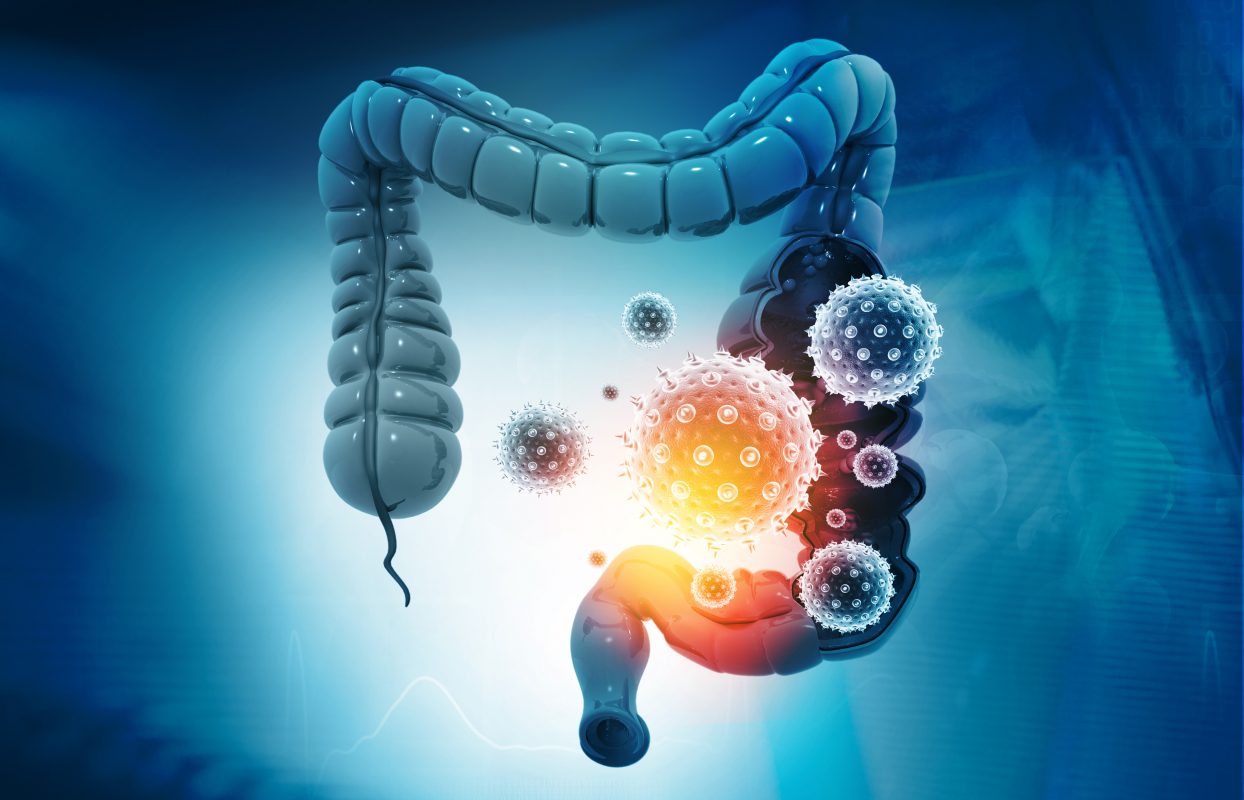A high-fiber diet is associated with higher survival rates in patients with melanoma being treated with a type of immunotherapy called checkpoint inhibitors, according to study results published in Science. The high-fiber diet is similar to the one endorsed by the American Cancer Society, and recommends high consumption of fruits and vegetables, whole grains, and […]
Category Archives: Latest Research
Patients with chronic constipation treated with kiwi fruit, prunes and psyllium reported relief in symptoms, according to a study published in American Journal of Gastroenterology, but kiwi had the highest patient satisfaction and the lowest rate of adverse events. “Functional foods” like kiwi and prunes are safer and less expensive than prescription medications, and it […]
Correlation between the composition of your gut microbiome, cytokine levels and inflammatory markers in COVID-19 patients confirms that severity of COVID-19 is linked to the gut microbiome, according to a study in Gut. In this study, blood, stool, and patient records from 100 patients with confirmed SARS-CoV-2 infection were evaluated. Results showed significant gut microbiome […]
When C-section born infants are given a cocktail of poo plus breast milk, their microbiomes look very similar to their vaginally-born counterparts. C-section-born infants have very different gut microbiomes than those born vaginally. Current research points to the hypothesis that these differences put C-section-born infants at a significantly higher risk for disease and less optimal […]
Antibiotics reduce the effectiveness of hormonal contraceptives in a new study. Anecdotal evidence shows women getting pregnant on hormonal contraceptives (this includes the pill, the patch, the vaginal ring, implants, IUDs, and injections) while taking antibiotics. Yet, past research has shown either no interaction between hormonal contraceptives and antibiotics or the findings have been inconclusive. […]
New research helps us better understand the causes and trends in the obesity epidemic – and what you can do within your own family to help manage weight. Approximately 42% of the adult population in the U.S. is obese, and obesity triples the risk of being hospitalized for COVID, so understanding the risk factors and […]
Prebiotic and probiotic supplements may improve depression symptoms; a June 2020 review study shows. Scientists analyzed 7 of the highest quality studies conducted in the last 15 years assessing the effectiveness of single and multi-strain pre- and probiotics in improving depressive symptoms in patients with a clinical diagnosis of depression. Researchers included only those studies […]
Fasting plasma blood glucose levels (FPG) at hospital admission independently predicts COVID-19 complications and death in those without diabetes. Scientists looked back at the FPG levels at hospital admission in 605 COVID-19 patients in Wuhan. Those with a FPG of 126 mg/dL or higher were nearly 4 times more likely to experience COVID-19 complications compared […]
Scientific evidence links COVID-19 transmission with fecal aerosols. A recent study, published in Annals of Internal Medicine, explored an outbreak in a high-rise apartment building in Guangzhou, China. The outbreak infected 9 individuals living in different units throughout the building. Through patient interviews, throat swabs, and an in-depth environmental investigation, researchers found that transmission most […]
Stress levels may be a key factor in determining who suffers from severe COVID-19 and could potentially help measure who is at an increased risk of mortality. In a study conducted in London, researchers took the cortisol levels within 48 hours of hospital admittance in suspected COVID patients. Those who did not have COVID became […]










